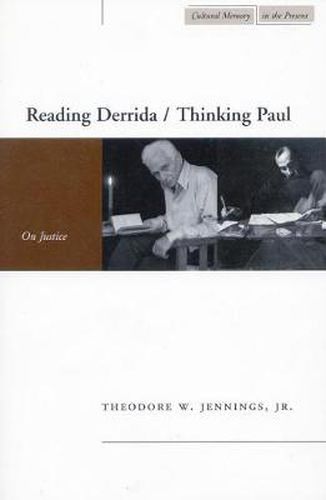This book explores the interweaving of several of Derrida’s characteristic concerns with themes that Paul explores in Romans. It argues that the central concern of Romans is with the question of justice, a justice that must be thought outside of law on the basis of grace or gift. The many perplexities that arise from thus trying to think justice outside of law are clarified by reading Derrida on such themes as justice and law, gift and exchange, duty and debt, hospitality, cosmopolitanism, and pardon. This interweaving of Paul and Derrida shows that Paul may be read as a thinker who wrestles with real problems that are of concern to anyone who thinks. It also shows that Derrida, far from being the enemy of theological reflection, is himself a necessary companion to the thinking of the biblical theologian. Against the grain of what passes for common wisdom this book argues that both Derrida and Paul are indispensable guides to a new way of thinking about justice.





